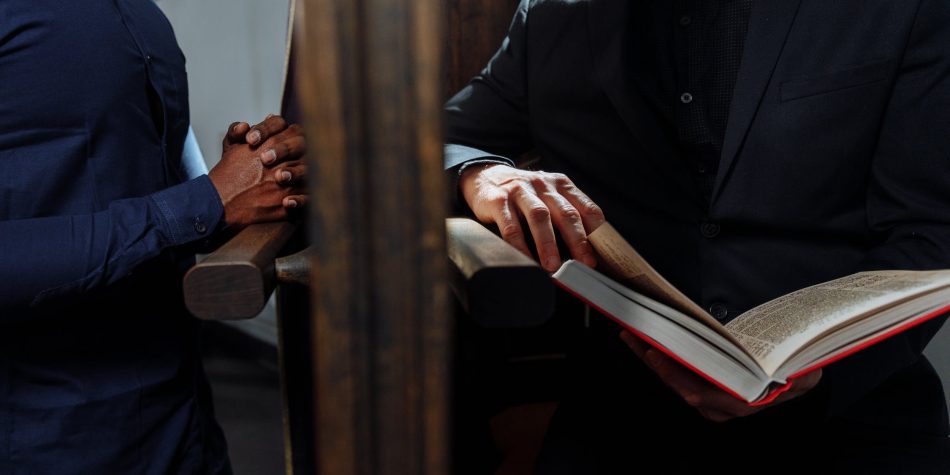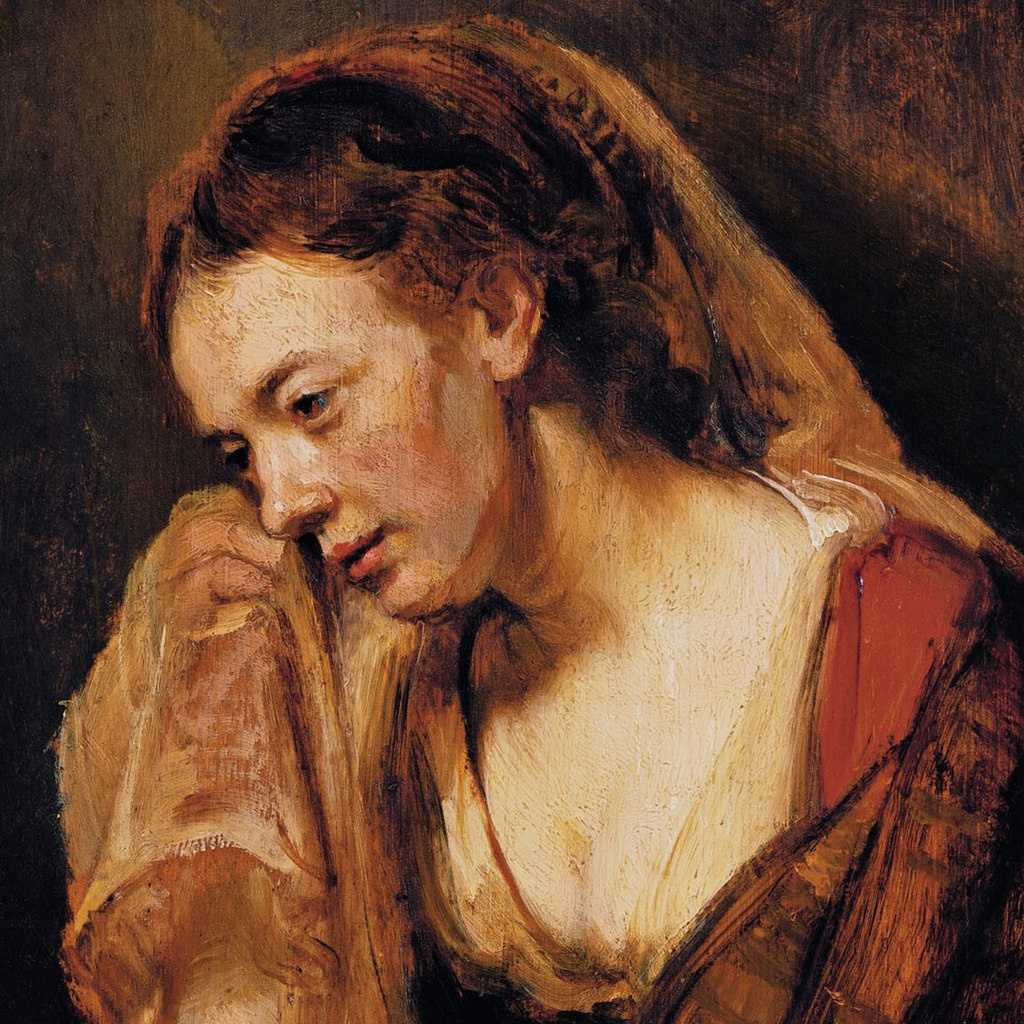If you are fortunate enough to visit the City of Prague and see one of the best-preserved and most beautiful old towns in the world, one of its highlights is the charming Charles Bridge.
Construction commenced in the 14th century, and its graceful arches of honey-colored stone are lined with statutes of 30 saints. Because one man’s particular story relates to the bridge and the city, one of the statutes where you will see the guides and tourists clustered is of a saint unknown to most Americans: Father John Nepomuk (also known as St. John of Nepomucene) the patron saint of Czechoslovakia (or Bohemia, for his life began around 1345, just a dozen years before construction began on the Charles Bridge). As the guides explain, Father John was a demonstrably holy man and became the confessor to the queen. In 1393, her abusive husband, King Wenceslaus IV, suspicious of infidelity, demanded to know what the queen had revealed to the priest in the confessional. Father John refused, chose torture over a reward, and was ultimately thrown from the bridge to drown. He became the patron saint of the confessional for all Catholics, for the Catholic Church taught then, as it does now, that the seal of confession is a sacred trust of a priest, and no earthly power has the right to break it.
On September 8th, Queensland, the second largest state in Australia and home to the city of Brisbane, adopted a law that requires a priest to break the seal of confession. Queensland follows the states of Victoria and Tasmania, which adopted similar laws in September last year.
According to an article in the Guardian,
“[The Queensland laws] create a new offence of failing to report and failing to protect a child from institutional child sexual abuse,” Queensland justice minister, Yvette D’Ath, said.
“The new laws also clarify that priests will not be able to rely on the seal of confession to avoid the reporting of abuse.”
The penalty is up to three years in jail in Queensland, as it is in Victoria. In Tasmania, the penalty is up to 21 years.
The new law did not come about overnight. A Royal Commission Into Institutional Responses to Child Sexual Abuse was created in November of 2012 and issued its report in 2017. The report consisted of 17 volumes including 85 recommendations. The Commission found serious problems relating to sexual abuse of children in Catholic institutions, among many other places (its focus was said to be on the Church of England, the Salvation Army, and the Catholic Church). The Commission set forth a long list of proposals to address what it found, including 21 directed specifically at the Catholic Church, and covering a host of organizational, administrative, and other issues. More states in Australia are continuing to debate similar laws stemming from these proposals, which were agreed to by the State and Federal Attorneys-general of that country last December. The Australian Constitution guarantees religious freedom, so legal challenges to the new laws are possible. Previously, federal rules of evidence in Australia had maintained the privacy of confession.
Child abuse is a grievous sin, and the Catholic Church continues to pay a grievous price for it.
For Catholics in the United States, there were painfully similar findings of child sexual abuse to those brought to light here, most prominently in Boston in 2002. Later that same year the U.S. Conference of Catholic Bishops agreed upon a national procedure that set forth a “zero-tolerance policy” for sexual abuse, but investigations and issues have continued to arise around the country. As is well known, the Catholic Church has faced enormous civil and criminal litigation stemming from the problem, has paid compensation to victims, confessed error, sought forgiveness, and has strived mightily to do better. Child abuse is a grievous sin, and the Catholic Church continues to pay a grievous price for it. In the minds of some, that price will never be high enough, and the Church can never do enough to atone. In a certain sense, Catholics agree: it is only the God of infinite love and mercy who will provide the repentant Church with the grace and healing for which no human actions will ever suffice.
Understandably, both in the United States, and now in Australia, the government has considered whether new measures are necessary to address the issue of child sexual abuse. Over the last twenty years, many mandatory reporting and other laws have been passed to attempt to identify and stop the perpetrators of abuse. Generally, compliance with such laws has not been an issue with Catholics or other clergy.
But among the 21 recommendations of the Australian Commission directed to the Catholic Church were two that are especially problematic. One was the law that seeks to break the seal of confession. The other was a recommendation that the Catholic Church make its rule of priestly celibacy voluntary. Many of the others were much less problematic, although some involved matters that seemed, at best, to be tangential to child safety.
The Australian Bishops and the Vatican opposed the laws requiring a priest to reveal information disclosed during the sacrament of confession. The Vatican issued a statement in 2019 confirming that everything said in confession is subject to absolute secrecy and is to be protected by confessors even if it subjects them to death. Denis Hart, Archbishop of Melbourne, affirmed the Catholic belief that the seal of the confessional is “inviolable” and confirmed that he would go to prison rather than break it.
In addition, the Archbishop and other bishops and fellow priests made several prudential arguments against the law:
- Sacramental confession of child abuse has become rare, so little is gained by so provocative a rule that would be even more rarely—if ever—followed. (The Commission found otherwise based on a small-scale study that appears to have been based on what happened many years past, not on what is the case now).
- Now that this law exists, as a consequence those few people who might have confessed will no longer do so; this is counterproductive, without the privacy of confession the priest loses the chance to convince a person who understands that they need absolution from their sin to go to the secular authorities, accept the consequences of their actions, and seek forgiveness from those who have been harmed (something the Vatican has said priests should do).
- Confessions are traditionally anonymous, often behind a screen. How could the priest fulfill his duty in such a situation?
Fundamentally, of course, the most serious problem is that the law will not achieve its stated end, because like St. John Nepomuk, priests will not violate the seal of confession. To do so, under Church law, results in automatic ex-communication of the priest, which only the Pope may undue. In stating that he would risk prison rather than break the seal, Archbishop Hart was not taking an extreme stance. He was explaining the consequence of the sacred vows taken by every Catholic priest. Identical statements from other Bishops and priests are found in numerous articles discussing this and similar proposed laws. Catholics believe that they are not merely confessing their sins to a priest. They are confessing their sins to God, through the priest, whom they see as the official representative of Jesus Christ (or “alter Christus”), and to whom is delegated the power to forgive sins.
One might reasonably ask, isn’t it understandable that in such a grave case as that of child abuse that certain accommodations must be made for the good of society? Melbourne Archbishop Peter Comensoli gave the answer to this question when the draft of a similar bill was offered in 2019 before the Australian Parliament, “Confession doesn’t place people above the law. Priests should be mandatory reporters, but in a similar way to protections to the lawyer/client relationship and protection for journalists’ sources.”
In other words, there are many grave horrors that society faces. Murder, rape, arson, gang violence, and on and on. Yet we understand that the accused need lawyers who can speak honestly to them and journalists have sources who will only come forward if protected. Similarly, it has been accepted that the seal of confession makes sense in all of those cases too, because it is through a system of belief that we can see the murderer redeemed, the rapist reformed, and the arsonist or gang member become a role model for a better way of life. The sacrament of confession has been a pathway for many sinners, great and small, to admit their failures and begin life anew. And a crucial element of every Catholic confession (as in other Christian faiths) is sincere repentance and a commitment to atone for the failures of the past— something that can lead the former sinner to accept the consequences of that which is not merely wrong but is also criminal.
Is it possible that this special exception to the seal of confession might be justified for a different reason, namely that it is a suitable punishment of the Church given its terrible sins regarding sexual abuse? The just answer would also seem to be “no.” To do so would be to visit the wrongs of the guilty on the innocent. The confessor priest is not the party who did the wrong: neither the abuse in the past, nor the abuse confessed to him. Yet we may have already seen the consequences of such a view in Australia, where Cardinal Pell, Archbishop of Sydney, was convicted of sexual abuse in an atmosphere of general outrage, despite wholly incoherent claims, recanted testimony, and convincing exculpatory evidence. A unanimous decision by the Australian Supreme Court reversed the seemingly inexplicable judgments of the lower courts after the Cardinal had spent over a year in prison (mostly in solitary confinement). Justice is not served by doing a new wrong in the vain hope of revenging an old one. Australian columnist, Andrew Holt, a conservative but not a Christian, has repeatedly warned that the Catholic Church is facing persecution in Australia for its traditional views. In his opinion, Cardinal Pell was not prosecuted for what he did, but rather for who he was, a leader of the Catholic Church.
In the United States, there have been similar efforts to enact laws like that in Queensland. A serious effort was made in California in 2019 to eliminate the seal of the confessional in California, also in connection with child sex abuse. Happily, the bill was withdrawn after significant pushback, including a statement from Muslim, Orthodox, Lutheran, Anglican, Baptist, Eastern Catholic Rites, and historic Black churches declaring that “we are all one with American Roman Catholics in condemning the attack on religious freedom that the current version of California Senate Bill 360 represents.” Los Angeles Archbishop Jose H. Gomez, called S.B. 360 “a dangerous piece of legislation. If any legislature can force believers to reveal their innermost thoughts and feelings shared with God in confession, then truly there is no area of human life that is free or safe from government.”
Many states have specific laws (or exceptions to more general laws) protecting sacramental confession as well as confidential counseling by religious. But as illustrated in a July 2019 article in the Jesuit magazine America that dealt with the California Senate Bill and contained a detailed discussion of the law in various other states, there is less than complete clarity. It pointed out the potential ambiguity relating to the protection of the seal of confession due to the welter of sometimes conflicting privileges, privacy laws, mandatory reporting rules in response to sexual offenses, and rules of evidence that exist in a number of states. So, it should be noted that what the Queensland, Australia, law accomplishes in a straight-forward way might also occur through court interpretation of this muddle of conflicting laws.
Efforts to break the seal of confession in court are not unknown in the United States. There have been several recent court cases. In Florida, Father Vincenzo Ronchi was ordered to testify as to the sacramental confession of Loren Burton (a tragic case involving allegations that as a 13-year-old, she molested a 7-year-old). The Florida District Court of Appeals, however, held that Florida’s Religious Freedom Restoration Act was controlling and protected the seal in this case, so it quashed the trial court order requiring Ronchi to “be questioned about the existence of the confession, the identity of the penitent, and the subject matter involved.” A 2014 Louisiana Supreme Court decision created questions about mandatory reporting laws and sacramental confession, but a 2016 case by that same court clarified that “Any communication made to a priest privately in the sacrament of confession for the purpose of confession, repentance, and absolution is a confidential communication … and the priest is exempt from mandatory reporter status…”
For people of faith, not merely Catholics, the Queensland law is another canary in the coal mine. It is a reminder of the paradigm shift that is underway in a secular world that is increasingly skeptical of—and even hostile to—traditional religious faith. Before the turn of the Millennium, the paradigm that generally prevailed was that the free exercise of religion was a fundamental right that entitled the believer to advocate for one’s beliefs in the public square and to practice those beliefs in ways that were largely exempt from government regulation. When conflicts arose between sincerely held religious beliefs and laws adopted for the general good of the community, exceptions were typically made for believers. It was still understood and accepted that religious people put their beliefs ahead of all other commitments and that this priority was deserving of both respect and a reasonable degree of deference.
But increasingly, politicians, lawyers, administrators, academics, intellectuals, and members of governmental commissions, by and large, are either no longer religious, or subscribe to religious views that seem more malleable than those of religious traditionalists. To this way of thinking, the concerns of eternal life are either an illusion or ought to be reconfigured to be consonant with a more enlightened way of thinking reflected in a progressive worldview. And various religious denominations, or groups within those denominations, have been willing to accede to, or even embrace, moral and ethical views that are fully consistent with that worldview. The Anglican Church in Australia in 2014 voted to abolish the requirement of the absolute secrecy of confession for “serious crimes.”
Accordingly, the free exercise of religion for traditionalists, like Catholics, is taking on a new and much more limited definition. It is a right to practice one’s faith in privacy, and to a lesser extent in conjunction with a like-minded community of believers, but it is subject to regulation and even proscription when it comes into conflict with other rights that are now treated as less subject to limitation, such as assisted suicide, abortion, gender identification, and the view of equality in broadly defined policies of non-discrimination.
In this connection, it is important to note that some of the leaders of these efforts have labeled themselves as “devout” and “practicing Catholics,” implying by their advocacy for these new regulations that there is no fundamental conflict between the laws that they espouse and a full embrace of the Catholic faith. This includes Daniel Andrews, Premier of Victoria and Leader of the Labor Party in Australia, and Nancy Pelosi and Joe Biden, leaders of the Democrat Party in the United States, who are pressing for laws that enshrine abortion up to the moment of birth, an educational regime teaching gender fluidity, and an “Equality Act” that will effectively bring an end to traditional views about marriage and family by labeling, and sometimes punishing them, as discriminatory.
Given the clearly stated position of the Catholic hierarchy on these issues, it is only by relegating religion to the most limited private, personal sphere that it is even arguable that the Catholic faith can be reconciled with such laws. In other words, it is a claim that although one may personally agree with Church teaching, it cannot influence what they believe public policy should be, for doing so would be forcing Catholic moral views on others. Yet by this same logic, it should not be acceptable to force on Catholics the moral views of others either, and, at this point, the policies these leaders espouse do just that. These politicians may be taken at their word that they are devout, and it is up to God and His Church to evaluate their Catholicism, but it is entirely fair for us to judge whether the policies that they espouse will allow those with traditional Catholic beliefs as articulated by its Pope and Bishops (and those of traditional beliefs among other faiths) to continue to freely and fully practice their faith without running afoul of the government. In politics and theology, the same rule applies: “By their fruits, you shall know them.”
It is in this light that some of the 21 recommendations of the Australian Commission to the Catholic Church, such as that on voluntary celibacy for priests, the method for running a diocese, and changing aspects of canon law, are, in an important way, as significant as the law regarding the seal of confession (even though most, such as celibacy, are not doctrinal, and the Church has allowed married priests). The concerning assumption being made here is that even the views of believers that in and of themselves are unobjectionable (it is still no crime to require celibacy or to appoint Bishops without transparent criteria!) ought to be modified when, in the considered judgment of the secular authorities, a different doctrine or practice is preferable. And as the forced reporting of a sacramental confession makes clear, it is not enough to refrain from conduct, but affirmative acts are required. So, too, Australian doctors with religious objections to abortion are compelled to refer patients making a request to doctors who will perform it. A similar perspective animates those who believe that doctors and nurses in the United States should be required to participate in abortions, without exception, because they prioritize what they consider access to health care over religious scruples regarding what constitutes taking life.
The trend exemplified by the Queensland law is clear. Those religious traditionalists who believe that their eternal life is in peril by complying with the governmental rules will be subject to increasingly painful choices. The priest who refuses to break the seal of the confessional will be faced with jail. The doctor who refuses to refer for an abortion will face loss of their license and their livelihood. What has now become true in Australia is what may well be a reality in the United States very soon.
The proper balance between the rights of the Catholic Church and the rights of the government have been in dispute since its origin.
While the guides on the St. Charles Bridge give the traditional Catholic view of the martyrdom of St. John Nepomuk, some trace the origins of the story to an investiture crisis between the King and the Bishop. That is, perhaps, another side of the same coin. In 1393 the fidelity of the queen might have been as dangerous to the security of the crown as the threat of foreign invasion. Either way, the government will always have its own set of priorities focused on this world, not any belief in the next.
The proper balance between the rights of the Catholic Church and the rights of the government have been in dispute since its origin. We must work at maintaining the balance that we have enjoyed up until now in the United States. Otherwise, the lamentable prophecy of the late Cardinal George of Chicago will come true: “I expect to die in bed, my successor will die in prison and his successor will die a martyr in the public square.” He did, however, add this hopeful note: “His successor will pick up the shards of a ruined society and slowly help rebuild civilization, as the church has done so often in human history.” As many a weary tourist in Prague would say, “Let’s just skip to the end and get to the good stuff.”
















